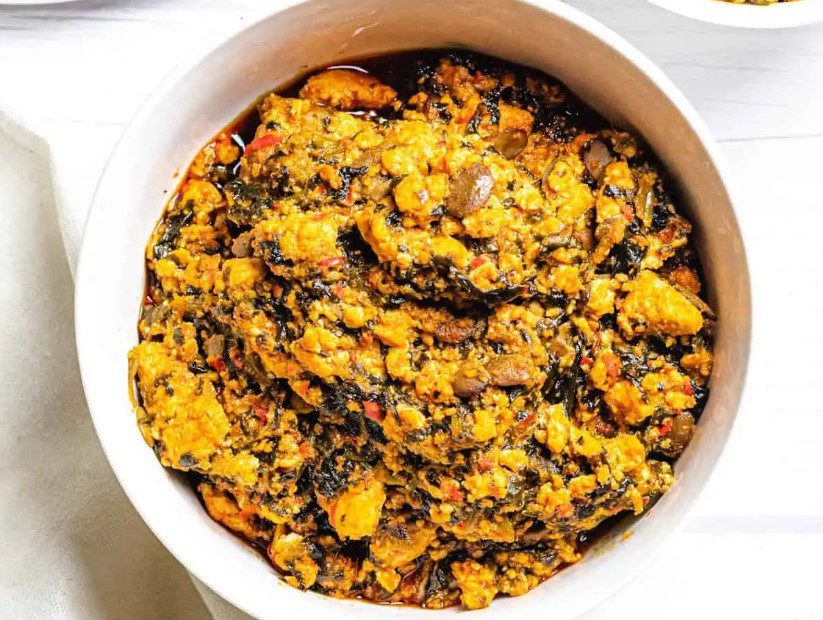

































Nigerian scientist, Temidayo Oniosun is sending “Egusi” seeds to space tomorrow
 DNA
DNA
 DNA
DNA
 F9
F9
 FLN
FLN
 KRM
KRM
In what is set to be a significant milestone, Temidayo Oniosun, a Nigerian space scientist and entrepreneur, will send melon seeds (Egusi) to Outer Space tomorrow.
The selected seeds are from Oyo State in Nigeria. They will be sent as part of a NASA resupply mission to the International Space Station on July 31st from the Cape Canaveral / Kennedy Space Centre, Florida, United States, using a Falcon 9 rocket provided by Elon Musk’s SpaceX.
His mission is simple: to assess its suitability for nutritional and functional applications in long-term human space exploration.
While the launch of Egusi seeds to the International Space Station signifies a mix of agriculture, technology, and cultural significance, it marks the first time an agricultural product native to West Africa will travel to space and the first time an object from Nigeria will.
In an exclusive conversation, Dr. Temidayo Oniosun explained that Egusi is a seed that the diaspora community can also connect to, and was chosen for this project due to its incredible cultural relevance.
According to him, Egusi seed culturally binds Nigerians from the three major tribes: Yoruba, Igbo, and Hausa, and many Africans can relate to its taste. “Egusi has evolved from Nigeria to gain popularity among West Africans,” he added.
The launch project is being executed in partnership with a U.S. Professor Karman Project (an NGO composed of astronauts, top CEOs and executives in the space industry), and Jaguar Space.
The Egusi seed will join other culturally significant crops from Egypt, Armenia, and Pakistan in a unique scientific initiative designed to explore how these heritage seeds respond to microgravity, to advance research into seed resilience, food security, and sustainable agriculture.

Sending Egusi seed to space is a testament to an individual who, for the past 10 years, has explored the Space industry and satellite applications. His firm has partnered with the government and organisations within and outside Africa, including the Lagos State Government and the African Union.
A well-known personality in the Outer Space industry, Temidayo is one of Nigeria’s most prominent voices in the global space ecosystem. He’s the Founder and Managing Director of Space in Africa, Africa’s leading authority on satellite industry trends, and of Trappist Labs, an R&D company building climate hardware for Africa.
Temidayo is also the first African to be selected for the Karma fellowship in 2020. In partnership with the National Aeronautics and Space Administration (NASA), Karma selected fellows from some African countries, including Egypt and Nigeria.
“I’ve done a lot of activities since my undergraduate days at the Federal University of Technology, Akure (FUTA). Then, I ran asterisk search campaigns, and I was part of the team that supported the EDUSAT-1 satellite project in 2017,” he said.
Sending Egusi seed to Space: How it will work
The project has garnered interest among Nigerians and Africans since its announcement on social media. On his part, Temidayo explained that an understandable way to think about this initiative is the need for survival.
He explained that people are. beginning to see the space as a settlement home of the future. And, people need to eat to survive in space.

“If people in Space will eat, that means there must be food for them, and right now, people such as astronauts are already living in the International Space Station for years. And the way to look at it is, if in the future, humans are going to become an interplanetary species, people are going to eat food and all of that, when does the African context come into play?”
Temidayo said that Africans must start seeing the need to register their presence in space. He added that Africans will find it hard to survive if the Space is dominated by Chinese, European or American foods.
The idea is to start experimenting with African foods in space, attempt to preserve it and see how it perform for the future.
“This places Africa at the forefront of space agriculture and reinforces the idea that the future of humanity among the stars must reflect the diversity and richness of life on Earth,” he said.
The experimental process and growth
According to Temidayo, the experiment stage commences with the launch into Space, where the seeds will spend some time, and be brought back. From there, its exposure to microgravity and outer space will be examined to measure impact.
“The goal is to do a lot of experiments, extract the DNA from the seed and determine if the exposure to microgravity has affected the DNA and the seed’s performance. Imagine we take a goose to space, and then we’ll bring it back. And then when we plant it, it’s germinating something else,”

‘We don’t know what’s going to happen until we experiment. So that’s why we’re doing this. The goal is that, in the future or soon, we can have African foods that are native to Africa and bring them out to space,” he said.
The July 31st resupply mission to the International Space Station is basically to transport food to the astronauts in space. The Egusi melon seed will launch to Outer Space by July 31st and return around August 10th for the first stage of its lab experiment.
According to him, the Egusi seeds will be loaded into a capsule and then into a container to be sent into the rocket.
While the Egusi seed will spend a couple of days in Space, Temidayo explained that there will be a real-time monitoring of its activity.
You can watch the launch live here on July 31st, 12:09 pm (Florida-local time).
What does this mean for Nigeria and Africa?
As a first-of-its-kind, the mission will position African food and cuisine for relevance in the future world order.
Temidayo also described it as a revolutionary shift in the ideology of what space is, from abstract to concrete. For him, this will change the perception of Space for many Africans.
“When people talk about space, they talk about satellites; people don’t connect with those things, as these things are in the abstract. And even if someone goes to space, you know, people don’t connect to it. But the whole agricultural angle will bring a different context,” he explained.

Moreover, when Nigerians and Africans have access to Space, they will be able to grow their food. “Egusi represents who we are, the resilience and the versatility of the city itself. It represents who we are as Nigerians. And it shows that there are no limits to how far we can go as a nation, as individuals”, he added.
Asked if there will be a future launch of other Nigerian seeds, Temidayo said Space in Africa has signed a couple of agreements with Jaguar Space to see that more agricultural produce is sent to space.
Hence, he promised that there would be a public campaign to encourage people to suggest the next seed to send.

